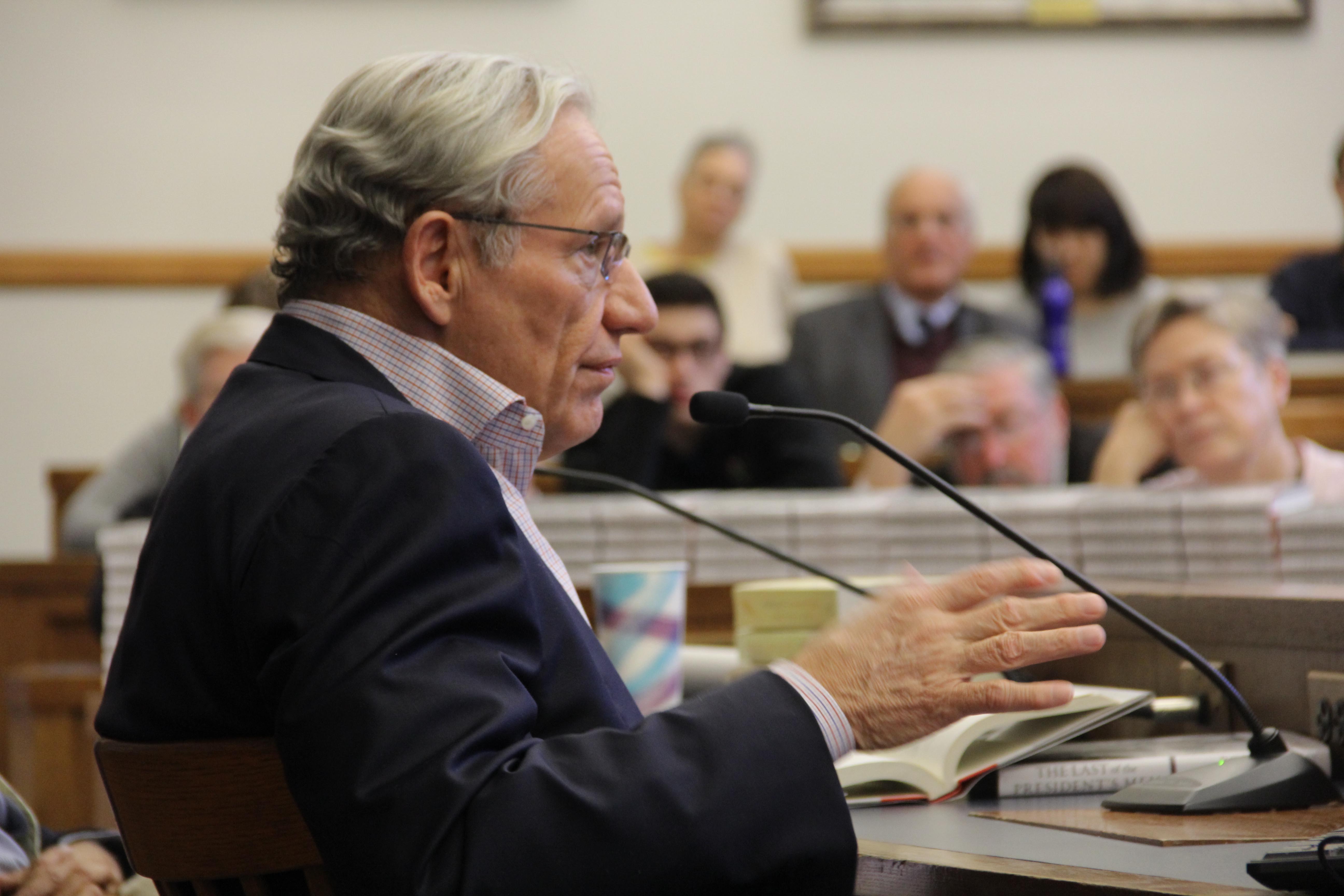
At a talk at the Yale Law School on Monday, renowned journalist and author Bob Woodward ’65 spoke about journalists’ responsibilities as historians and defenders of free speech.
Roughly 100 people attended the talk, which was moderated by Yale Law School professor Akhil Reed Amar ’84 and was intended to promote Woodward’s latest book, “The Last of the President’s Men.” Over the course of the hour-and-a-half-long event, Woodward discussed the importance of questioning the historical record, drawing on examples from his own investigation of the Watergate scandal as well as his subsequent reporting on later presidents to show how journalists can challenge common assumptions about history.
“I hope this talk is about ‘How good is history?’” Woodward said. “And if it’s not complete, how can we learn [the complete story]?”
Woodward highlighted the contrasting reactions of former U.S. President Richard Nixon and his aide, Alexander Butterfield, in the wake of Watergate. While Nixon continued to deny his crimes after he resigned from the presidency, Butterfield admitted his guilt. Butterfield’s honesty, Woodward said, enabled him to appear “clean” in the public eye, as opposed to others involved in the scandal who still appear questionable.
“Butterfield saw what he did was wrong,” Woodward said. “That [confession] significantly added to his credibility.”
While he and his colleague Carl Bernstein were investigating Watergate, Woodward said, Nixon was waging a “war against the press.” Journalists were constantly worried that their phones were being tapped. Even after Watergate came to light, Woodward added, Nixon continued to wage a “war against history” by attempting to cover up scandalous details.
Journalists can also shed a different light on controversial events or figures, Woodward continued. Historically, President Gerald Ford, Nixon’s successor, was blamed for pardoning Nixon’s involvement in Watergate, Woodward said. But after extensive interviews with Ford, Woodward said he learned that Ford made his “courageous” decision in order to shift the country’s focus from Nixon’s legacy to more pressing current affairs.
The need for transparency in politics is still urgent today, he added. When Amar asked him about presidents after Nixon and the 2016 presidential election, Woodward emphasized the importance of revealing a political candidate’s full character before he or she becomes president, not after.
During a question-and-answer session at the end, Woodward again highlighted how people’s understanding of history is not always accurate. Alex Knopp, a visiting lecturer at the law school, asked Woodward why Henry Kissinger, who served as Nixon’s Secretary of State, was involved with Nixon when Kissinger was such an admired statesman. Woodward responded that Kissinger was likely fully aware of Nixon’s scandals, but that Kissinger has been able to preserve his legacy through a highly effective public relations campaign.
At the end of his talk, Woodward asked audience members what they consider to be the biggest problem facing the U.S. right now. Answers varied from gun control to Syria, from global warming to nuclear weapons. Woodward, though, said his answer is “secret government.” He added that an effective First Amendment is a major factor that ensures the continuing presence of democracy.
“No one has come to my door and arrested me, because we have an operating First Amendment,” he said. “The thing I hope for in my old age is that we never fall victim to that darkness that might surprise and devastate us.”
All 17 of Woodward’s nonfiction works have appeared on the New York Times Best Sellers list.







